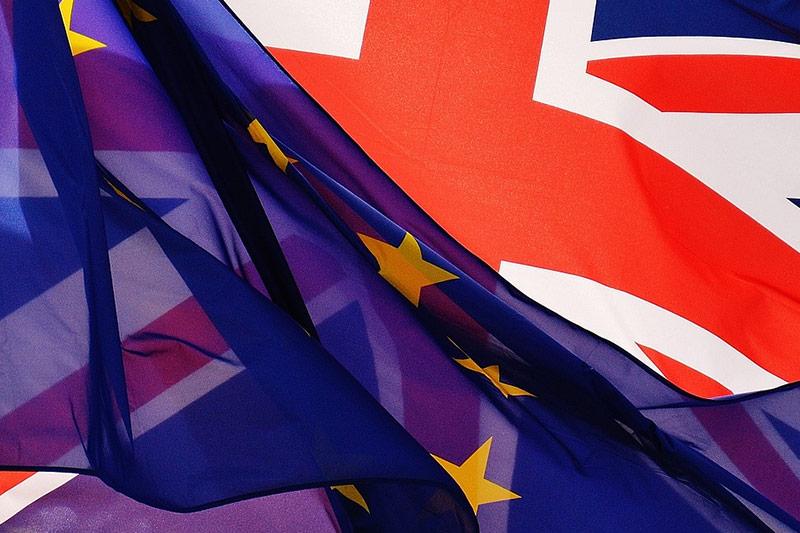March 13, 2017

BREXIT: THE LEGAL “SHOCK” (THE INFLUENCE ON CITIZENS AND BUSINESSES, BREXIT ALTERNATIVES AND CORRESPONDING LEGAL CONSEQUENCES)
The British vote to leave the EU in the referendum of summer 2016 was a shock to all European countries. This result shock was not particularly expected so it created an unexpected situation with no precedent in the EU history. Even though there were strong indications that Brexit could prevail in the referendum, it seems that its serious consequences to a number of legal issues had not been analytically predicted.
Besides, it is known that the Treaty of European Union did not initially provide an exit process for its members and that this was firstly introduced in 2009 by the amendments made by the Lisbon Treaty, which regulated for the first time an exit process for EU members through the well-known now article 50.
Article 50 provides for the member state that wishes to exit the EU to notify the European Council by a relevant notice which triggers a 2-year period of negotiations between the EU and that state. In case the negotiation period is not enough, there is a possibility to extend it but all member states of the EU should unanimously agree to that extension.
It is very interesting, in my opinion, speaking from a legal perspective to examine certain issues that are related to the type and form of the notification of article 50 itself and in particular to underline from a legal perspective whether that notification is lawfully expressed which is a matter that should be examined according to European law and not according to the national law of the state that makes the notification.
The above issue is included in a category of legal matters that arise from the differences between certain national laws and European law, and highlights the legal “gaps” that the UK –not very rarely- had to deal with when applying European rules.
Personally speaking, another issue that is very interesting is the possibility for a member state to exit the EU not according to article 50 but by an alternative way such as, for example, by just repealing the European Treaty or by following the procedure of article 54 of the Vienna Treaty. A less interesting matter is also the attempt of an academic comparison of the Greenland case to the Brexit, which are essentially different to each other since Greenland was not actually a state.
However, the above matters seem to have been overcome after the well-known decision of the Supreme Court that obliged the British government to ask for the Parliament’s consent before making the relevant notification –triggering article 50- a decision followed by a more mature process and for that clearly accepted for a number of legal and political reasons.
However, despite the fact that the exact final form of Brexit will be a result of negotiations on Treaties and laws, it is clearly a matter that is directly connected to a number of practical results on the basic EU freedoms, such as the free movement and establishment of persons, services, businesses etc.
In reality I believe that not even the governments are able, at least for the time being -taking into consideration the lack of any precedent in the EU history - to realize in its full extent the legal issues arising in relation to each and every sector of freedom, as provided in the Treaty on the EU (which shall now be replaced by another multilateral treaty or even by bilateral treaties) or to every sector of activity.
Even worse, the European businesses that are somehow connected to the UK are certainly confused with the impact that each alternative way of Brexit may have on them, either
a) on their establishment and operation in the UK or
b) on their free access to the UK market by a single license of the country of origin or
c) on their employees’ ability to remain in the UK or not.
Even businesses which are not located in the UK are directly affected by the Brexit because of the business agreements that they have for selling products or providing services in the UK, since now these businesses have to immediately solve all issues related to their ability to continue their agreements and manage all negative results of the Brexit. I will soon publish another article for this particular matter.
In the present article, I would try to present the basic alternative forms that Brexit could have and the practical results for each one of them, in a simple way so that it could be understood by non legal experts.
A) The case that the UK enters the European Economic Area (EEA)
This potential does not seem very likely to me, but if it were to be chosen it would clearly mean that all freedoms and rights provided by the Treaty on the EU would automatically apply to the UK as well. The states that are currently in the EEA are Norway, Iceland and Liechtenstein. If that is the case, not only all European freedoms and rights would apply to the UK as well, but also the obligation for the UK to comply with the European Regulations. Personally speaking, this particular potential would be very odd from a political rather a legal perspective. This is because the UK has voted to leave the EU aiming at being more independent and more able to “legislate on its own” and especially to exercise its own immigration policy etc. It would be in fact very weird that after all the negotiations with the EU, the UK leaved the EU but entered the EEA. However, anything is possible in politics.
B) The potential of a Treaty based on the model Treaty of EU-Switzerland, namely to enter (again) the European Free Trade Association (EFTA)
This potential would result in the UK adopting the European Regulations for a series of matters while it would be left independent to regulate others. Being independent, though means on the other hand that not all rights will apply for the UK. For example, by virtue of bilateral Treaties between Switzerland and the EU, the free movement and establishment of persons and, therefore, basically all relevant EU regulations apply for Switzerland as well. However, there are sectors for which Switzerland does not enjoy full access to the European market, for example to the sector of financial services.
C) Other types of agreements such as the Treaty between the EU and Korea
D) Other type of a new bilateral agreement between the UK and the EU,
It’s hard to predict and practically we all have to wait and see what the outcome of these weird negotiations could be, since we should not forget that the UK is the first country exiting the EU and as such no legal precedent exists.
It would also be quite interesting, from a clear legal perspective, if a unique deal between the UK and the EU is achieved, how many of the national UK laws are to be replaced.
E) No agreement at all, no Treaty
This is the potential that is the most challenging from a legal perspective. Generally, in case the UK achieves no deal or no bilateral Treaty with the EU and, all transactions, sales of products and services will be subject to the regulations under the World Trade Organization (WTO), meaning that there will be no free movement of products and services and that tariffs and restrictions will be imposed. All current business agreements would face a tremendous “legal shock” since free movement will be abolished and all the current agreements would be burdened with extra expenses or extra procedures for both parties.
Free movement of businesses and services, the status of unified/ single business license, also known as business passport, will also be fully abolished leading businesses to either have relocate to other states of the EU or to apply for a national license to operate but without knowing exactly the prerequisites for its acceptance since this matter will be regulated by the British law. Of course, this is also the case for the British businesses that operate in the EU states using the European “passport”. According to EU rules a single / unified license from the county of origin is enough in order to operate in all European countries so no other national license is required by the authorities of the state in which the operation takes place.
As far as persons are concerned, the results of such a potential are obvious after the abolishment of the free establishment and movement principal. This very matter is important for them both as individuals and as employees of businesses that are under free movement and working status.
It is very interesting for those who deal with international law matters to try to categorize the results of Brexit depending on its alternatives.
The different results may be also categorized based on the basic freedoms, as provided in the European Treaty. Another type of categorizing the Brexit results is also, by distinguishing between persons and businesses. Finally, an important classification could be the one based on different sectors of business activities since the Brexit results may have different impacts on different business sectors.
George Dimaras is a Greek lawyer, member of the Athens Bar Association, founder of Dimaras & Associates Law Firm.



